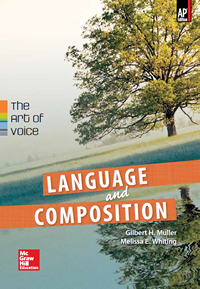
Language and Composition: The Art of Voice (Muller and Whiting)Chapter 10: Literature and the Arts: Why Do They Matter?Chapter OverviewAs you read the essays in this chapter, consider the following questions:
Imagine a world without fiction, poetry, or drama, without music, art, or other fine arts. We are so accustomed to taking the arts in their totality for granted that it is hard for us to conceive of contemporary culture without them. Our fondness for stories or paintings or any other creative form might help us understand our culture or might even move us to action. Yet the value of various artistic forms does not derive exclusively from their ability to tell us something about life. The arts can also take us into an imaginative realm offering perhaps more intense experiences than anything we encounter in the “real” world. Think of literature and the arts as an exercise in imaginative freedom. You are free to select the books you read, the music that appeals to you, the exhibitions and concerts you attend, and the entertainment software with which you interact. Some of your decisions might be serious and consequential to your education. Other decisions, perhaps to watch a few soap operas on a rainy afternoon or to buy the latest potboiler, are less important. The way you view the arts—whether as a way to learn something about the temper of civilization or as a temporary escape from conventional reality—is entirely a matter of taste. Regardless of your purpose or intent, you approach literature and the arts initially for the sheer exhilaration and pleasure they provide. Art, as Plato observed, is a dream for awakened minds. The arts awaken you to the power and intensity of the creative spirit. At the same time, you make judgments and evaluations of the nature of your creative encounter. When you assert that you like this painting or dislike that poem, you are assessing the work and the value of the artistic experience. Clearly, you develop taste and become more equipped to discern the more subtle elements of art the more you are exposed to it. Perhaps you prefer to keep your experience of literature and the other arts a pleasurable pastime or an escape from reality. Or you may wish to participate in them as a creative writer, musician, painter, or photographer. Ultimately, you may come to view literature and the arts as a transformational experience, a voyage of discovery in which you encounter diverse peoples and cultures, learn to see the world in creative terms, and begin to perceive your own creative potential in a new light. |  |















